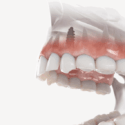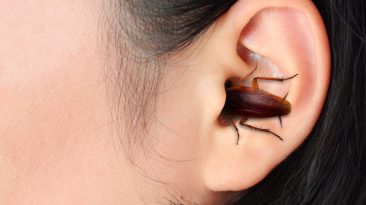They show up uninvited. They shake your whole body. And they can travel up to 160 kilometers (100 miles) an hour.
When you sneeze, all the muscles in your body react, everywhere from your eyelids right down to your sphincter. Do you hate sneezing in awkward situations?
Are you scared of spreading germs? Well, What would happen if you held in all your sneezes?
To figure this out we have to ask: How does sneezing actually work? And what would happen to us if did hold in our sneezes?
A sneeze has the role of getting anything out of your nose and sinuses that shouldn’t be there. That could be anything, including pepper, dust, perfume or even pet dander.
So how does sneezing work? The official name for sneezing is sternutation.
During the act of sneezing, your body is building up pressure in your respiratory system. Your lungs, throat and sinuses are shaking in suspense.
Sneezes are involuntary. When an uninvited guest shows up in your sinuses, the red flags go up, and convulsions in the airway rocket the air out of you.
Otolaryngologist Noam Cohen of the University of Pennsylvania compared it to fixing a computer error. He said “It’s like “resetting the system—like Control-Alt-Delete.” In 2002, a study at Denmark’s Department of Otorhinolaryngology at Rigshospitalet showed that 95 percent of people sneeze four times or less each day.
Worldwide, we could be sneezing upwards of 7.8 billion times a day. So what would happen if we tried to hold them in?
Well, infectious diseases such as whooping cough , the common cold and the flu can all be spread by sneezing. If you were to hold your sneezes in, you could be stopping the spread of several diseases.
But we wouldn’t recommend it. When you hold in a sneeze, you’re putting up to 24 times more pressure on the respiratory system than if you just let it out.
Possible injuries from trying not to sneeze include pulled muscles, burst eardrums, and ruptured blood vessels in the eyes. It can do some serious damage, and result in serious complications for your body, including pneumomediastinum (which is air becoming trapped between your lungs), and the rupture of a cerebral aneurysm.
Cases have also been reported of a held-in sneeze causing globs of infected mucus to be slammed through the eustachian tube and into the middle ear, bringing an infection along with it for the ride. Maybe you should just let the sneeze out.
In 2018, a man in Britain was admitted to hospital after he attempted to stifle a sneeze. The attempt resulted in rupturing the back of his throat. He also managed to tear his pharynx, which connects your mouth and nasal cavity to your esophagus.
Doctors found that air from the man’s lungs had managed to bubble into his deep tissue and chest muscles. Once there, it had no way to get out again.
This poor guy was hospitalized for a week, and required a feeding tube and intravenous antibiotics, just to help with the pain and swelling. If we held in all our sneezes, this could go from being a medical rarity to a common occurrence.
So, what would your world look like if you held in all your sneezes? Well, the phrase “bless you” would rarely be uttered outside of church.
Pepper suppliers would see a small dip in their business, and doctors might see a big drop in cases of the common cold virus. However, they’d see a lot more patients with beet-red eyes from their blood vessels bursting.
Sneezing is a very simple, everyday action that almost everyone does. It’s a bodily function we take for granted.
It may be annoying, but if you force sneezing out of the picture, life becomes a lot more complicated. A sneeze takes a fraction of a second, the same amount of time it may take to land in the hospital if you try holding it in.
So, it’s best to just let it happen, and wipe your nose instead. Did you know that there’s research showing a sneeze can release endorphins the same way an orgasm can?
Sources
- “Why Holding in a Sneeze Can Be Dangerous”. Jason Daley, Smithsonian. Accessed November 28 2019.
- “Why Do We Sneeze?“. CHRISTINE DELL’AMORE, 2012. nationalgeographic.com. Accessed November 28 2019.
- “Why Do We Sneeze? Everything You Need To Know”. 2019. Healthline. Accessed November 28 2019.
- “Pneumomediastinum”. 2019. Accessed November 28 2019.
- “The Potential Dangers of Holding in a Sneeze”. 2019. Healthline. Accessed November 28 2019.



























